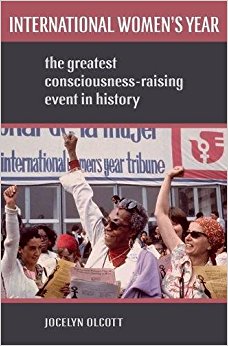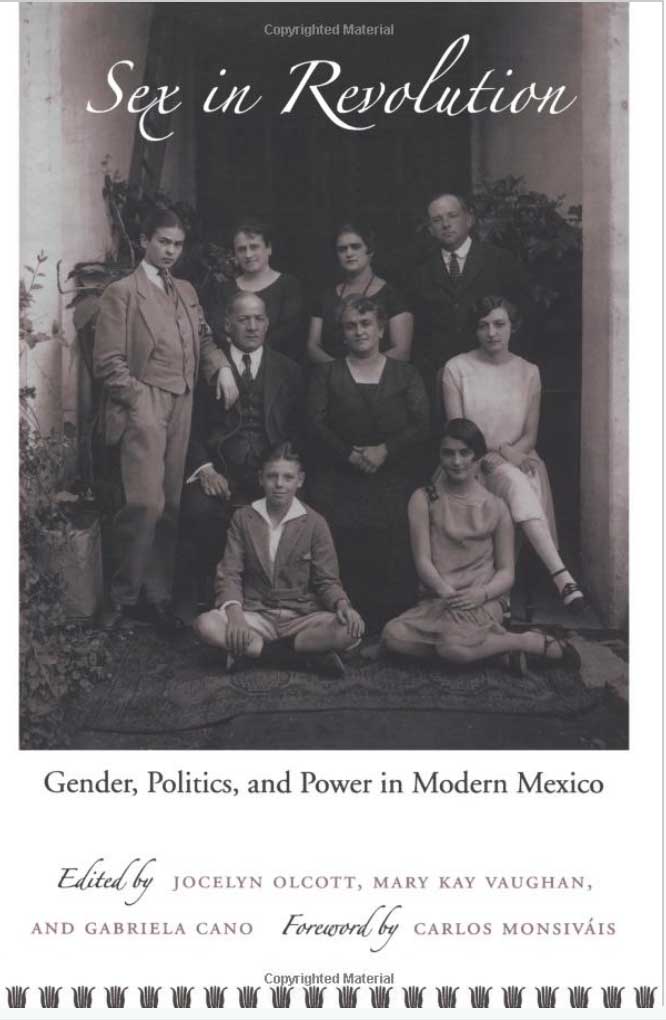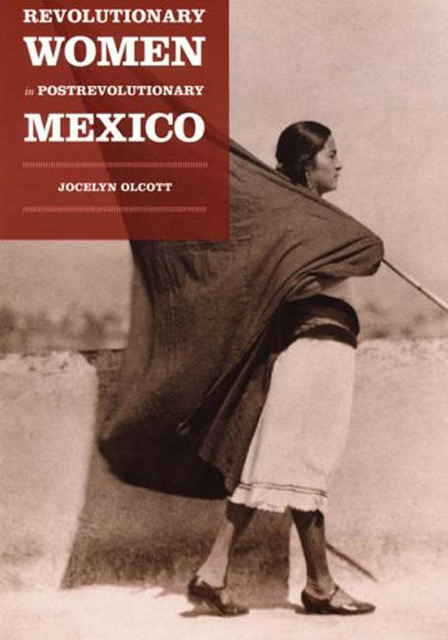Co-winner of the 2020 Ida Blom-Karen Offen Prize in Transnational Women’s and Gender History, awarded by the International Federation for Research in Women’s History.
Honorable Mention for the 2018 Bryce Wood Book Award, awarded by the Latin American Studies Association to an outstanding book in humanities and social sciences published in English
Amid the geopolitical and social turmoil of the 1970s, the United Nations declared 1975 as International Women’s Year. The capstone event, a two-week conference in Mexico City, was dubbed by organizers and journalists as “the greatest consciousness-raising event in history.” The event drew an all-star cm the first book to examine this critical moment in feminist history, starts by exploring how organizers juggled geopolitical rivalries and material constraints amid global political and economic instability. The story then dives into the action in Mexico City, including conflicts over issues ranging from abortion to Zionism. The United Nations provided indispensable infrastructure and support for this encounter, even as it came under fire for its own discriminatory practices. While participants expressed dismay at levels of discord and conflict, Jocelyn Olcott explores how these combative, unanticipated encounters generated the most enduring legacies, including women’s networks across the global south, greater attention to the intersectionalities of marginalization, and the arrival of women’s micro-credit on the development scene.
Honorable Mention for the 2018 Bryce Wood Book Award, awarded by the Latin American Studies Association to an outstanding book in humanities and social sciences published in English
Amid the geopolitical and social turmoil of the 1970s, the United Nations declared 1975 as International Women’s Year. The capstone event, a two-week conference in Mexico City, was dubbed by organizers and journalists as “the greatest consciousness-raising event in history.” The event drew an all-star cm the first book to examine this critical moment in feminist history, starts by exploring how organizers juggled geopolitical rivalries and material constraints amid global political and economic instability. The story then dives into the action in Mexico City, including conflicts over issues ranging from abortion to Zionism. The United Nations provided indispensable infrastructure and support for this encounter, even as it came under fire for its own discriminatory practices. While participants expressed dismay at levels of discord and conflict, Jocelyn Olcott explores how these combative, unanticipated encounters generated the most enduring legacies, including women’s networks across the global south, greater attention to the intersectionalities of marginalization, and the arrival of women’s micro-credit on the development scene.
Sex in Revolution challenges the prevailing narratives of the Mexican Revolution and postrevolutionary state formation by placing women at center stage. Bringing to bear decades of feminist scholarship and cultural approaches to Mexican history, the essays in this book demonstrate how women seized opportunities created by modernization efforts and revolutionary upheaval to challenge conventions of sexuality, work, family life, religious practices, and civil rights.
Concentrating on episodes and phenomena that occurred between 1915 and 1950, the contributors deftly render experiences ranging from those of a transgendered Zapatista soldier to upright damas católicas and Mexico City’s chicas modernas pilloried by the press and male students. Women refashioned their lives by seeking relief from bad marriages through divorce courts and preparing for new employment opportunities through vocational education. Activists ranging from Catholics to Communists mobilized for political and social rights. Although forced to compromise in the face of fierce opposition, these women made an indelible imprint on postrevolutionary society.
These essays illuminate emerging practices of femininity and masculinity, stressing the formation of subjectivity through civil-society mobilizations, spectatorship and entertainment, and locales such as workplaces, schools, churches, and homes. The volume’s epilogue examines how second-wave feminism catalyzed this revolutionary legacy, sparking widespread, more radically egalitarian rural women’s organizing in the wake of late-twentieth-century democratization campaigns. The conclusion considers the Mexican experience alongside those of other postrevolutionary societies, offering a critical comparative perspective.
Concentrating on episodes and phenomena that occurred between 1915 and 1950, the contributors deftly render experiences ranging from those of a transgendered Zapatista soldier to upright damas católicas and Mexico City’s chicas modernas pilloried by the press and male students. Women refashioned their lives by seeking relief from bad marriages through divorce courts and preparing for new employment opportunities through vocational education. Activists ranging from Catholics to Communists mobilized for political and social rights. Although forced to compromise in the face of fierce opposition, these women made an indelible imprint on postrevolutionary society.
These essays illuminate emerging practices of femininity and masculinity, stressing the formation of subjectivity through civil-society mobilizations, spectatorship and entertainment, and locales such as workplaces, schools, churches, and homes. The volume’s epilogue examines how second-wave feminism catalyzed this revolutionary legacy, sparking widespread, more radically egalitarian rural women’s organizing in the wake of late-twentieth-century democratization campaigns. The conclusion considers the Mexican experience alongside those of other postrevolutionary societies, offering a critical comparative perspective.
Revolutionary Women in Postrevolutionary Mexico is an empirically rich history of women’s political organizing during a critical stage of regime consolidation. Rebutting the image of Mexican women as conservative and antirevolutionary, Jocelyn Olcott shows women activists challenging prevailing beliefs about the masculine foundations of citizenship. Piecing together material from national and regional archives, popular journalism, and oral histories, Olcott examines how women inhabited the conventionally manly role of citizen by weaving together its quotidian and formal traditions, drawing strategies from local political struggles and competing gender ideologies.
Olcott demonstrates an extraordinary grasp of the complexity of postrevolutionary Mexican politics, exploring the goals and outcomes of women’s organizing in Mexico City and the port city of Acapulco as well as in three rural locations: the southeastern state of Yucatán, the central state of Michoacán, and the northern region of the Comarca Lagunera. Combining the strengths of national and regional approaches, this comparative perspective sets in relief the specificities of citizenship as a lived experience.
Olcott demonstrates an extraordinary grasp of the complexity of postrevolutionary Mexican politics, exploring the goals and outcomes of women’s organizing in Mexico City and the port city of Acapulco as well as in three rural locations: the southeastern state of Yucatán, the central state of Michoacán, and the northern region of the Comarca Lagunera. Combining the strengths of national and regional approaches, this comparative perspective sets in relief the specificities of citizenship as a lived experience.


